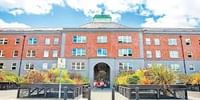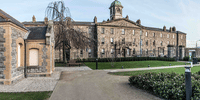?By focusing on the molecules, cells, organs and genes of the immune system, their interaction and how they are activated and regulated, students will develop a deep understanding of the pathological processes underpinning immune mediated disease and how they might be controlled.
From a practical perspective the course involves in-depth instruction in modern methodologies used in immunology/biomedical research, including the fundamentals of molecular and cellular biology. Students will also be trained in experimental design, data handling and basic research skills. The masters course aims to provide students with a well-balanced and integrated theoretical and practical knowledge of Immunology, and to highlight the progress and intellectual challenges in this discipline.
The following modules are mandatory, and make up the taught component of the course: Basic Immunology; Immunological Technologies; Communicating Science/Critical Analysis: How to read and evaluate scientific literature; Computational and Comparative Immunology; Genes and Immunity; Pathogen Detection and Evasion; Clinical Immunology: Immuno-technologies and diagnostics tests; Parasite Immunology; Tumour Immunology; Global Infectious Diseases; Immuno-therapeutics and product development.
In addition, students will be required to submit a dissertation based on a research project conducted in one of the Immunology groups located within or affiliated to The School of Biochemistry and Immunology.










